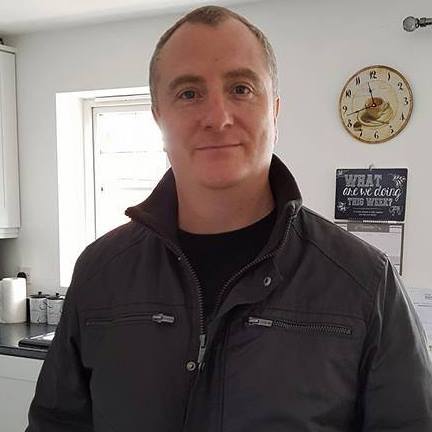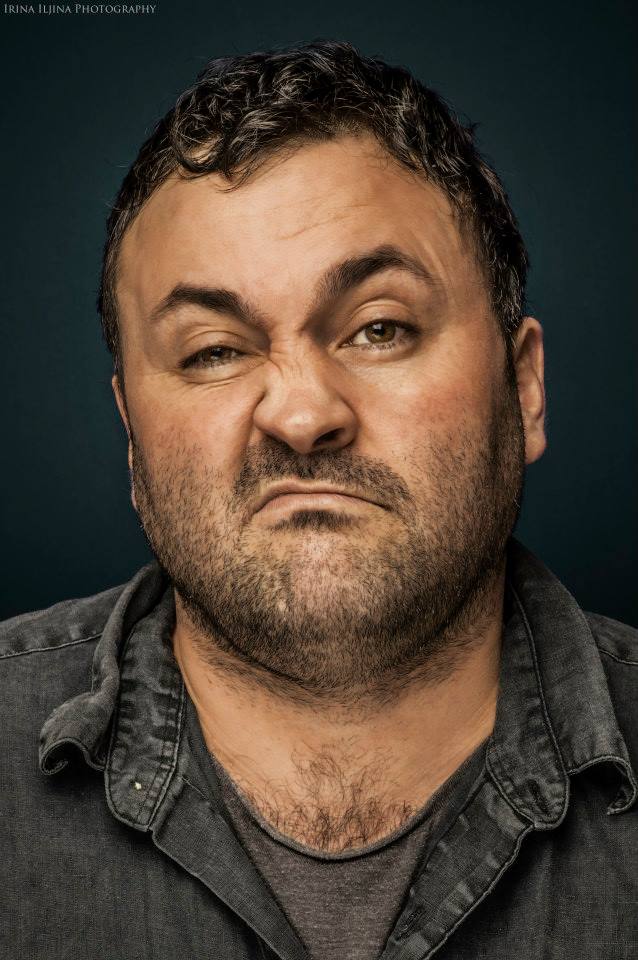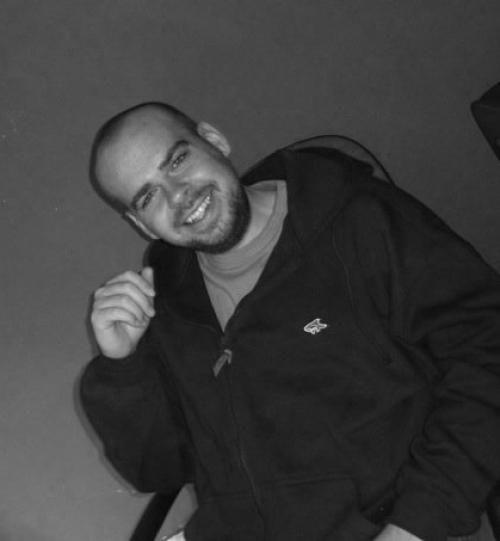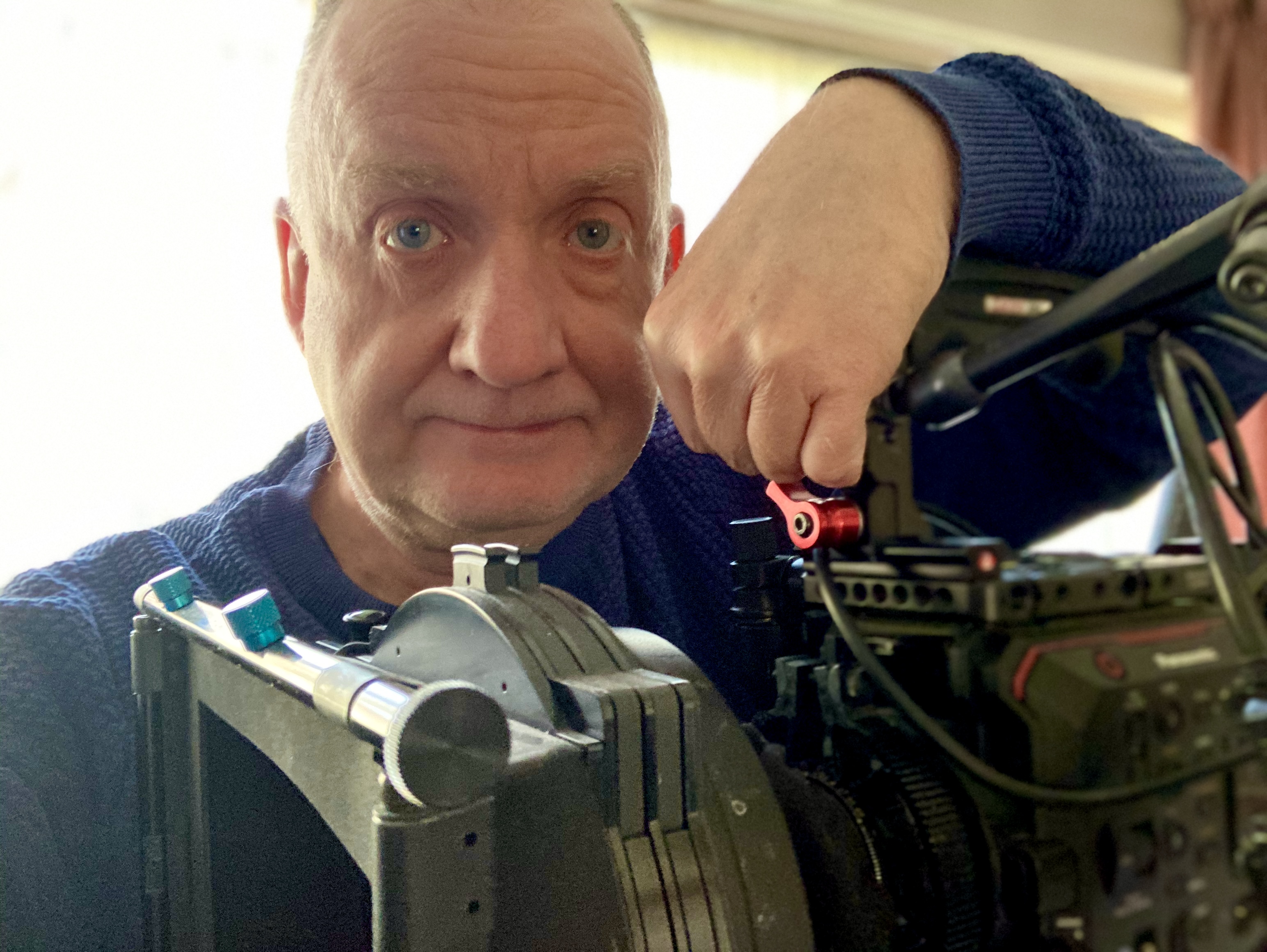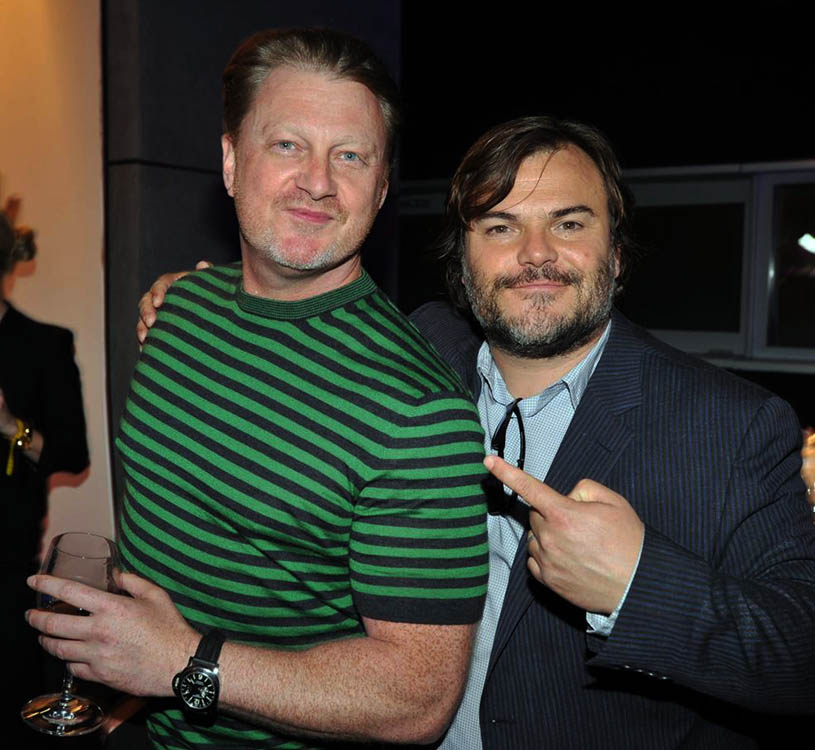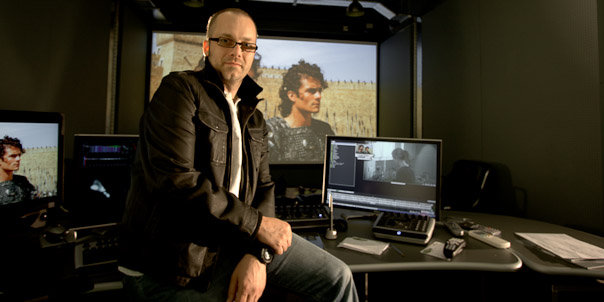ASK & DISCUSS
INDEXHow do you make a living?
7 years, 7 months ago - Vasco de Sousa
Apparently, the majority of projects here are "self-funded", which means most "producers" and "directors" here are not working for a professional film company. Well, maybe weddings are self-funded (or by the bride's parents) but they often pay photographers 3,000 to 9,000 a day. (For the posh ones anyway, source, Bride Magazine. But then, looking at the cameras, I suppose the photographers spend a lot of that on equipment.)
Whenever a film grad asks how they can get a job, they get shot down (usually by the same few members.) It's as if asking to make a living from one's work has been compared to wanting a porsche. (One person, who pretended to offer a full pay job, even called PAYE a luxury. Then he dared to call himself a writer.)
It seems many people expect other filmmakers to have a second source of income. Fine. What second source of income do you have? How did you get that day job? How do you juggle it around your filmmaking hobby? Or, if that's too personal, just, how do you make a living?
I'd also like to suggest, for all "low pay" and "expenses only" work, that the filmmakers involved be asked to disclose their income sources, whether they be retired architects, film festival organisers, bank managers, etc.
But anyway, I'm looking for other income sources. Maybe something that would allow time off for film.
I ask again, if you don't have investors, how do you pay the bills?
Only members can post or respond to topics. LOGIN
Not a member of SP? JOIN or FIND OUT MORE
7 years, 7 months ago - John Lubran
Thanks for giving us another phylosophical debate opportunity Vasco. It opens up such huge spectrum of socio-economic-political possibilities that it's hard to know where to start or end. I understand that there's about 40,000 members here. You're possibly correct in assuming that a lot of them have not been able to sustain themselves working in film or TV. Since we've not yet taken a census of folks affairs it's impossible to make any kind of definitive analysis. What we do know is that the greater part of the membership appear to be too busy to interact with these bulletins; imagine the chaos if only one percent of them behaved as we do! We also know that of the regular contributers some find the time despite being busy with related projects.
Someone here once wrote that for some here, being rich toffs allowed them the luxury of trying. I imagine however that for many it's a struggle comensurate with the proverbial artists garret. Even living on unemployment benefits these days without knowing how to duck and dive a little is not sustainable enough to forge a film career, without some significant genius. So it's probably true that for most beginners juggling time and energy with a proverbial day job is required; either that or having a partner able to pay the bills.
I can also imagine that a disproportionate number of those who manage to find a way are not 'film grads', because they are more likely to have had to sustain themselves independently from an earlier age. The lessons if life greatly inform any undertaking.
Whatever may be the facts of the matter there's probably one main factor challenging many of us; there's a conciderable over subscription of aspirants to provided opportunities. It must follow that creating our own opportunities is the way forwards for those many. It's not always the most talented who get the cream but it's often the luckiest. A self made millionaire once told me "the harder I work the luckier I get"; I'd add to that it's not just hard work that increases luck by quoting that other proverb "working smarter gets you further than working harder". One takes ones pick.
I don't believe in those business guru's who sell pep talk lectures. The numbers of ways to success are nearly as many as there are people. The accomplishments of unearned wealth however are something else and ought not be relied upon for much of a source of advise on how to be successful.
7 years, 7 months ago - Paddy Robinson-Griffin
My "other line" is big events. They come along occasionally, but represent a solid chunk of work and cash when they do. To get started, though, I worked over a decade in engineering and IT to bootstrap my first film which made my first opportunities.
7 years, 6 months ago - Vasco de Sousa
Thank you both for your responses. I sometimes wonder if anyone else here works for a living, or if they all live in their mother's basement.
I recently read about a homeless silicon valley entrepreneur who didn't say that she didn't have money to hire people, but raised money, ran a successful business, and ended up being an investor herself.
My question is, if you're not creative enough to at least attempt to raise enough money to pay people, then how dare you call yourself an artist?
7 years, 6 months ago - Mark Renshaw
I work full time in business software development. Writing and making films is therefore a hobby for me with the hopes of making it more than that one day. The downside is I have very limited time to indulge in my hobby, but the upside is I can afford to make my own (short) films as well as attend film festivals and seminars.
7 years, 6 months ago - Michael Sandiford
I run my own small multimedia business making digital content for clients. It took me I'd say 10 years to get it profitable enough to make an OK living with. I'm not top tier or pulling in top tier money but I'm making enough. The only problem is when I get a nice contract in I end up having to put our own projects on the shelf, so much so that I've pretty much only worked on other peoples projects recently. I'm determined to get our projects of the ground in the few years and move our business into more of a narrative film and TV.
7 years, 6 months ago - Michael Sandiford
I make sure that all my professional work when I need other people I pay the going rates, but on personal creative projects I can't. Sometimes I trade services but unfortunately raising money is an incredibly hard thing to do on your own creative follies.
7 years, 6 months ago - John Lubran
I'm not sure I agree with Vaco's estimation that there's necessarily an artistic correlation between raising money or any other art form. The correlation between any form of art and money is entirely subjective. Raising money is a skill, whether or not it's an art must be subject to varying contexts and opinion.
I think that the issue is about business and about the business models required to monetise art or any other activity. In a capitalist system it's either that or charity.
7 years, 6 months ago - Vasco de Sousa
About 1 in 8 Uk businesses are in the creative industries. Nearly 2 million people are employed in the UK creative industries, only about 40 percent of those are freelance. About another million have "creative" roles in organisations not considered part of the creative industries.
http://www.thecreativeindustries.co.uk/uk-creative-overview/facts-and-figures/employment-figures
So, really, there are a lot of day jobs for artists.
7 years, 6 months ago - PHIL WEST
Looking at the paid (full time) jobs, especially on SP, just look at one from two days ago, they expect so much experience and expect proficiency in various forms of software from your years of learning and the pay is around £15 - £18k (depending on experience)?!
Also the hours seem to be longer than the normal 9-5, it's 9am-6pm, or 8am-5:30pm, some even say they want you to be flexible over weekends on top of your weekday work.
The pay has got so bad that some people are forced to work outside of the industry and dabble as a freelancer just to keep their hand in.
I'm a freelance editor and camera op. But I also run a printing/embroidery business.
7 years, 6 months ago - Mark Wiggins
The ones that get me are the ones that want you and all your kit, plus can you provide grip and lights as well, and they are not insured. I like doing low budget which is why I'm on Shooting People but I'm not in to financing other people's fantasies.
7 years, 6 months ago - John Lubran
Even within the so called mainstream operations, producing television for 'B List' broadcasters, employment practices are often Dickensian. But what also ought to be factored into this issue is that the budgets with which many independents are obliged to work are insufficient to provide decently for crews. It's too often a dog eat dog and the devil take the hindmost form of capitalism applied at the top of the food chain, long before its affect has trickled down to the abuse and impoverishment of crews.
Clearly there are too many people willing to put up with it. Too many people hoping to make sacrifices in the evidently forlorn hope that it will eventually launch a glittering career.
In such a context Vasco is touching on what is the emergence of alternative business models. Where needs must, breaking through the glass ceilings created by earlier moguls and worthies, is an increasingly viable option. Such has indeed been creative thinking. Copying those created templates though is not.
Much of these alternative options are empowered by the Internet and developing forms of Crowd Funding that extend beyond the provision of facilitating website businesses. Those platforms are just one facet of a multi faceted business model. It's going to be a longer evolution before this new business model works well enough for purely feature length fiction drama without empathy for real and actual human ethics and aspiration; ironically it may well initially work better for lower budget shorts that do.
The age of the fully front loaded and freely distributed six and seven figure budgeted dramatised feature documentary has arrived; IMHO.
7 years, 6 months ago - Vasco de Sousa
John, a couple years back I was pitching a mid-six figure history documentary, which wasn't much more than 4k talking heads. The work was for a government agency, and I think the subject is freely available now, somewhere. The problem was it required six year storage facility, something I couldn't guarantee. The company that won the bid does seven figure nature documentaries, so I guess the competition was pretty tough anyway.
For a lot of these jobs, they insist that everyone on staff, and all freelancers, are given at least a living wage.
7 years, 6 months ago - John Lubran
@vasco de sousa. There's always been a somewhat nepotistic aspect to winning commissions from broadcasters; the bigger the budget the more nepotistic. It's a risk avoidance thing more than it's a benefits for mates thing. Occasionally it's been possible for lower ranked folk pitching a great idea to get a collaborative role of varying prominence with a 'preferred' supplier. Sadly it's been evident that great ideas are often stolen under the 'false flag' of "We're already developing a very similar project".
The requirement to pay the living wage is no great thing for any role above that of the most junior.
There's a lot of truth in the adage. 'Start at the top', it saves having to faff about at the bottom.
7 years, 6 months ago - Adam Ethan Crow
Im lucky, I pay my bills by working in film. But there were many years where I didn't. during that time I worked in restaurants, hotels and general bar work -- then wrote at night.
The problem with our profession is that if we hit the big time we get to live the dream; even if we hit the mediocre time we're having a better life than somebody working a bar, loading vans -- working at Subway.
Consequently it is not easy; and it shouldn't be.
If someone's unable to make a living wage then they have to ask themselves, do they go on -- or get a job that pays well and give up on their dream?
If this life was easy everybody would do it.
A
7 years, 6 months ago - John Lubran
Behind every story there's another story. It's that story that's often more interesting and informative than the one in front.
7 years, 6 months ago - Mark Wiggins
It is true that this life is hard. Every day I’m not working I am busy chasing work; it’s no good just waiting for the phone to ring. Even on the days I’m working I’m still keeping an eye on emails just in case something comes up. It never stops.
7 years, 6 months ago - Vasco de Sousa
Thanks for all your responses so far.
I see perhaps a handful of people who might make a living with film on this list.
What I also see is a lot of people who run short film festivals, or useless film courses, giving advice which roughly equates "take film courses, enter useless film festivals." Some of these people work at universities, or get government money, and give bad advice to people who would otherwise follow their instinct and become runners instead.
Most of these courses are held on evenings and weekends of course, because no professional filmmakers go to them, so it's held when the wannabe suits have time off. Waiters could go during the day, filmmakers don't want to talk about film after a rough day filming. So, almost all wannabes at these events.
Then, others take those courses, and end up starting others. Like a huge, useless MLM of film advice.
It boggles the mind that some people think that they made a short film on their day off, and somehow they are a professional. It's like building an ikea bookcase, that doesn't make you a carpenter. And helping a stranger build an ikea bookcase won't help you get a job as a real carpenter either, even if your bookcase wins the local bookcase festival.
7 years, 6 months ago - Mark Wiggins
Yes. I started as a runner; hated it. It was very much a means to an end for me.
7 years, 6 months ago - Glyn Carter
The elephant in the room through most of this discussion, is that there is negligible effective demand for short films, microbudget features, or other kinds of entry-level material: to make any sector of the film industry sustainable, money has to come from people who'll part with cash in exchange for the pleasure that film drama offers.
Because there's no demand, there's no marketplace. But it's also true that with no marketplace, it's hard to judge if there's potential demand. The internet is a marketplace, but no-one has yet fully tapped its power, whereby small producers can stream directly to individuals on a pay-per-view or cheap subscription basis.
Amazon, iTunes and others offer a small foothold for microbudget features... but the real growth area has to be short films and webseries. Billions of people with mobiles and tablets increasingly want bite-sized videos for coffee-break entertainment. And they want something more than YouTube clips.
Whoever can broker this will make a fortune. More importantly, smalltime film-makers can find an audience based on the quality and appeal of their content, not name actors and marketing power. Money will flow into the undernourished indie/short sector.
It's just around the corner.
7 years, 6 months ago - Vasco de Sousa
The most evasive answer yet. The question was how do you make a living, not pitch the metaphysical potential of short films to me.
There are people making money off of short films, not billions, but enough to live decently on and pay for equipment. I've been paid to be an extra, and work a teleprompter for short films. I've also been paid for my writing.
I haven't really had many day jobs, because it's easier for me to get film jobs. And, I'm applying for most of those through other places now.
How do you make a living (or, if you're retired, or currently unemployed, how did you make a living before that?)
7 years, 6 months ago - Mark Wiggins
It’s not just around the corner; it’s actually coming around the corner and appearing into view. There are YouTube channels now that host short films. Omeletto, Dust and Crypt TV to name but three. It does not matter that these are free to view; people do not make shorts to make money. They make them to build up a track record, gain experience and get noticed. And it works. I can think of numerous examples of people who started making no/low budget shorts who have gone on to become mainstream filmmakers. Yes, the vast majority will fall by the wayside but that is due to lack of talent and lack of luck; not because making shorts is an egotistical waste of time (as some people would have us believe.)
Where would we be if Christopher Nolan had listened to the naysayers and stopped making the low budget shorts he was making at the weekend? Some great movies would not have been made.
7 years, 6 months ago - Vasco de Sousa
I'm not saying don't make shorts. I'm saying don't waste money on entering festivals, and don't try to break in through shorts. Don't waste disk space on horror shorts if you don't even like horror. Just make the shorts that you find fun, or those that pay you.
I actually have a kind of biography of Nolan. A reverse making-of for memento and the micro-budget student feature "following."
Now, After he made the feature Following, he got some notice in the industry (not on youtube) and raised the money to make a proper feature. He didn't just get discovered with his short films.
Many other filmmakers who made shorts, like Ridley Scott, started their careers in TV or advertising before their short films were discovered. And, they generally made these short films with family and friends.
Make short films with your friends, by all means. See whether you enjoy it. But, understand that a feature is a different animal. And understand that with over 4000 active film festivals, some stinkers are going to win a few contests.
7 years, 6 months ago - Mark Wiggins
@vasco de sousa "Following" is actually just a very long short in a way; made at weekends for £7000. If you think he could have made "following" without the knowlegde he gained from making the shorts I think you are very much mistaken. That's one of the great things about shorts, you learn by doing. Much better than anay course. And of course, he didn't get noticed on Youtube; Youtube didn't exist!
Interestingly, the lead actress in Following, went from working on Following to being the lead in another short called "Superstitious Minds" on which I was the DOP. The producer (and writer) of that short is now quite a successful producer in the Indy film sector. So, as I say, the short film route works.
7 years, 6 months ago - Vasco de Sousa
@Mark Wiggins Well, we all make shorts with friends. It's like being in school plays. At film school, you make about four shorts for each class, and a bunch more with your friends for fun. Most of the time, you have to make a few more to get into film school.
Experimenting helps you learn, sure, but there's only so much you can learn on shorts.
Many people who made great features made terrible shorts first.
I've made shorts and features, and the organisation, planning, and editing required in a feature is much greater. The commitment is a huge step. I don't think I learned that much from shorts compared to what I learned from research.
I think for most people, the barrier to go from shorts to features is not talent, it's a lack of commitment, or a fear of the unknown.
7 years, 6 months ago - Mark Wiggins
@vasco de sousa
All the jobs on a film set, whether they be in the Art Department, Camera Department, the ADs, Grips, Electric, Costume, Hair and Make-up or Director are exactly the same on a Short as they are on a Feature. So to say to someone, if they want to work on features, its better to do research than actually do the job on Shorts is absolutely mad. If I were looking for a Camera Trainee for a feature and I had two applications: one from someone who had never worked in the camera department but had done a lot of research into it, and one from someone who had worked as an AC on several shorts, I know which one I'd pick and it wouldn't be the one who had done the research. To say to someone, if you want to work in Feature Films, forget about working on Shorts, its a waste of time. Do your research and you'll be fine! That is probably some of the worst advice anyone could ever give. Its just wrong.
7 years, 6 months ago - Vasco de Sousa
@Mark Wiggins You're not understanding what I'm saying. I'm sure that a lot of crew jobs are very similar, but organisation is completely different, and so is writing. Directing is different.
Since you keep putting words in my mouth, and this is way off the topic of the thread, I won't respond in detail here anymore.
7 years, 6 months ago - John Lubran
Hmm; I'm sitting in my living room at home watching TV and engaging in various Internet based activities and conversations, such as this one. I'm also effectively making money as I sit here because I'm a multitasking creative producer; and because I've set up processes with which others can get on with deploying their own skills. I've given more than a strong hint here as to how my business works. What I'm constrained from doing is publishing the definitive and detailed template because to do so wouldn't be prudent, though it ought not take the brains of a rocket scientist to join enough of the dots to do something similar. One thing that does present as invaluable is ones coleagues and collaboraters; particularly when starting something with little or no money. Social grace combined with cracking good ideas is how many people make a living.
Amongst the 40,000 members here there's probably hundreds of different basic pathways to earning money but perhaps only a few to making money; there's a difference. Whereas operating a specific service as a freelance craft provider, even at the highest levels that might include director, can be described as a business, such depends on an altogether different type of enterprising entity to create those primary resources that make any viable production possible.
Where I've alluded to the empowerment of the Internet, and with regard to Glyn Carter's post above; I don't concider pay per view to be anything like a viable market for shorts, ever. Glyn's reference to You Tube is pertinent because they already provide a free to view platform of millions of 'shorts'. People are not going to pay to view shorts. Furthermore people are increasingly unwilling to pay for any kind of media at all. Netflix may never make a profit! The future is about monitising free distribution. Those who crack that conundrum will be both rich and powerful.
7 years, 6 months ago - Vasco de Sousa
So, in short, your answer to the question is you're a creative producer. Or, perhaps a drug dealer. Or a spy. Or, maybe you own stock in shooting people, and you're using this conversation to entertain clients. I don't know.
Look, a doctor or a shop worker or inventor or screenwriter doesn't say "I'm not going to tell you my job title because it's a secret." Everyone knows what Steven Spielberg and Richard Branson do for a living. You don't know the details of Google's patents, but they are out there.
When you fill out a census form, or have an obituary, or do your taxes, it will say a quick, one or two word thing on what you do for a living.
I normally get introduced as a writer, because it's how I spend most of my time, it's what's on official documents, and where I've had the most clients over my lifespan. However, despite this, I still have idiots who try to pretend to be giving me an "opportunity" to write something for them. These people obviously don't see writing as a profession, but as a hobby.
When someone asks you "what do you do?", someone not on shooting people, what do you answer? What do your friends answer, if they are introducing you?
7 years, 6 months ago - John Lubran
@vasco de sousa. Just be clear, I'm not a drug dealer, a bread dealer, a cake dealer or any other type of dealer. My day job, since 1985, is film, TV production, related business and services. My hobby, as it were, is law and constitution; occasionally the two overlap.
At 68 I'm also a working pensioner!
7 years, 6 months ago - Glyn Carter
@John - your point about "Social grace combined with good ideas" is quite right. It points to what I think is a key reason to make (and crew & act in) short films: because it's a great way to meet and work with a lot of other people. One day, one of them will call you up with a job offer. Many directors or producers who graduate to features (or other paid work), take their tried-and-trusted crews with them.
Your other point (and Mark's, above) is another interesting debate. Someone will indeed crack how to monetise short films (or maybe they have, and I just don't know the business models). It may be free-to-view with advertising/sponsorship, or may involve ppv or subscription - yes, many people expect to get stuff for free, but others will still pay for quality (see Shorts TV). Undoubtedly there will be a brand leader "Netflix for shorts", as well as genre specialists like Crypt and Dust.
However it works, short film-makers and cast/crews should see some of this revenue. If they don't, they should create their own platform!
7 years, 6 months ago - Lee 'Wozy' Warren
I started life in investment and finance fields. 15 years ago I was in investment banking and asset and fund management. But my life in film started many years earlier making super 8mm films just like the kids in JJ Abrams film Super 8.
But 18 months ago I closed my VFX house and moved everything in to property and now have a high seven figure portfolio that has kept me busy, and paid.
Film has now become my number two business and I do it for fun, to mentor and to give back by helping emerging talent with funding and guidance.
Woz




